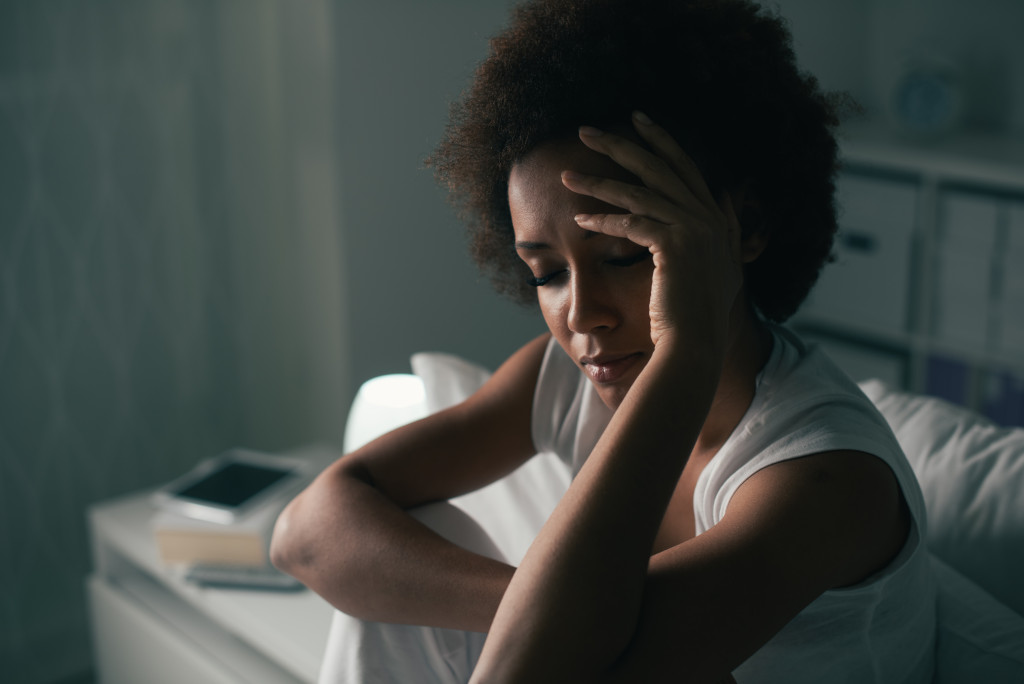It’s no secret that sleep is essential. We all know that we need it to function correctly, but many don’t get the recommended seven to eight hours per night. Poor sleep habits can lead to health problems like obesity and diabetes and even contribute to mental health issues. So what can you do if you’re struggling with poor sleep patterns? Several treatments are available, from changing your bedtime routine to taking medication. Keep reading for more information about the causes and symptoms of poor sleep and treatment options.
Causes of Poor Sleep
Poor sleep occurs due to several different factors. When left untreated, it can have severe consequences for your health. Some of the most common causes of poor sleep include:
Stress
Stress is a common trigger for poor sleep. When we’re stressed, our bodies are on high alert, making it difficult to relax and fall asleep. Stress can also lead to racing thoughts and worries, making it even harder to drift off. In addition, stress can cause physical symptoms like headaches and muscle tension, making it difficult to get comfortable and fall asleep. As a result, managing stress is an integral part of maintaining a healthy sleep schedule.
There are many different ways to reduce stress, such as exercise, meditation, and deep breathing exercises. Experiment with other techniques and find what works best for you. By managing your stress levels, you can improve your sleep and overall health.
Anxiety
You’re not alone if you’ve ever struggled to fall asleep due to a racing mind. Anxiety is a common cause of insomnia. It can be challenging to break the cycle of worry and poor sleep. However, there are some things you can do to ease anxiety and promote better rest. First, try to establish a regular sleep schedule and stick to it as much as possible. This will help your body get into a rhythm and make it easier to fall asleep at night. Second, avoid caffeine and other stimulants in the hours leading up to bedtime. And third, create a relaxing bedtime routine that includes activities like reading or taking a bath. By making these small changes, you can start to get the restful sleep you need to feel your best.
Sleep apnea
 Sleep apnea is a common condition that affects millions of people. It occurs when a sleeping person’s breathing is interrupted, causing them to wake up gasping for air. Sleep apnea can lead to serious health problems, including high blood pressure, heart disease, and stroke. It can also cause daytime fatigue and increase the risk of car accidents.
Sleep apnea is a common condition that affects millions of people. It occurs when a sleeping person’s breathing is interrupted, causing them to wake up gasping for air. Sleep apnea can lead to serious health problems, including high blood pressure, heart disease, and stroke. It can also cause daytime fatigue and increase the risk of car accidents.
There are two main types of this sleep disorder: obstructive sleep apnea, which takes place when the airway is blocked, and central sleep apnea, which takes place when the brain pauses on sending signals to the muscles that control breathing. The treatments may differ, but you may need to get surgery if your condition is severe. During the treatment, the surgeon will use a medical-grade compressor to cut out the extra tissue in your airway. This will help you breathe better and sleep more soundly.
Restless leg syndrome
If you’ve ever experienced an irresistible urge to move your legs, particularly when trying to sleep, you may have had restless leg syndrome (RLS). RLS is a condition that affects the nervous system and causes feelings of discomfort or unease in the legs. The situation can make it difficult to fall asleep, leading to poor sleep quality. In addition, RLS can cause fatigue during the day. While there is no cure for RLS, treatments can help ease symptoms and improve sleep quality. If you think you may have RLS, talk to your doctor about treatment options.
Depression
Many people don’t realize that there is a strong connection between sleep and mood. In fact, research has shown that poor sleep can be a significant risk factor for depression. One of the most common symptoms of depression is difficulty falling asleep or staying asleep. This can lead to a cycle of exhaustion and irritability, which only contributes to the negative thoughts and feelings associated with depression.
In addition, research has shown that people with depression are more likely to have disturbed circadian rhythms, which can further disrupt sleep patterns. If you’re struggling with depression, it’s essential to talk to your doctor about ways to improve your sleep. Getting adequate rest is vital to managing depression and promoting overall health and well-being.
The takeaways
While some of the causes of poor sleep are outside our control, such as genetics or medical conditions, there are things we can do to improve our sleep hygiene and get a better night’s rest. If you’re struggling with poor sleep, talk to your doctor about what might be causing it and see if there are any steps you can take to address the issue. With a bit of effort, you may find that your mood and energy levels improve and your overall quality of life.

